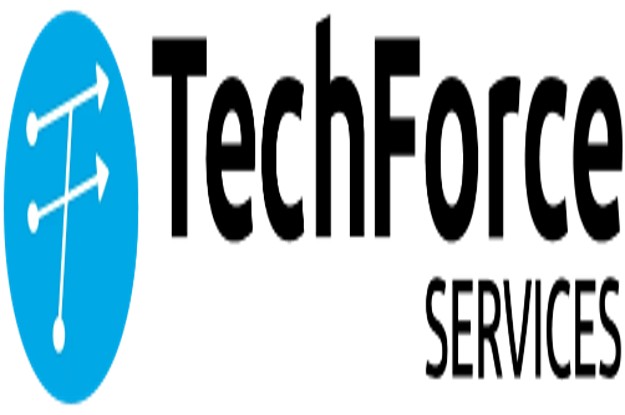
In today’s digitally-driven marketplace, designing customer-centric marketing strategies is essential for businesses aiming to build meaningful relationships, drive engagement, and foster loyalty. Salesforce Marketing Cloud emerges as a powerful ally in this endeavor, offering robust tools and capabilities that enable organizations to understand, connect with, and deliver personalized experiences to their customers effectively. This article delves into how businesses can leverage Salesforce Marketing Cloud to craft customer-centric marketing strategies that resonate with audiences and drive sustainable growth.
The Importance of Customer-Centric Marketing
Customer-centric marketing revolves around putting the customer at the center of every business decision and interaction. It focuses on understanding customer needs, preferences, and behaviors to deliver tailored experiences and solutions that meet their expectations. By prioritizing customer satisfaction and engagement, businesses can enhance brand loyalty, increase customer lifetime value (CLV), and differentiate themselves in competitive markets.
Leveraging Salesforce Marketing Cloud for Customer-Centric Strategies
Implementing customer-centric marketing strategies with Salesforce Marketing Cloud begins with leveraging its comprehensive suite of tools for customer data management, segmentation, and personalized marketing automation. Salesforce Marketing Cloud integrates seamlessly with Salesforce CRM, enabling marketers to access unified customer profiles, track interactions across multiple touchpoints, and create personalized marketing campaigns that resonate with individual preferences and behaviors.
Key Strategies for Designing Customer-Centric Marketing Strategies
- 360-Degree Customer View: Utilize Salesforce Marketing Cloud to consolidate customer data from various sources, including CRM systems, social media platforms, and website interactions. Create unified customer profiles that capture demographics, purchase history, engagement metrics, and preferences to gain a holistic view of each customer’s journey and behavior. By understanding customer insights, marketers can personalize communications, anticipate needs, and deliver relevant content that enhances engagement and satisfaction.
- Segmentation and Personalization: Leverage Salesforce Marketing Cloud’s segmentation capabilities to categorize customers into distinct segments based on demographics, behaviors, and preferences. Develop targeted marketing campaigns and personalized messaging that address specific segment needs, pain points, and interests. Use dynamic content and personalized recommendations to deliver relevant experiences across email, mobile, social media, and digital advertising channels, fostering deeper connections and driving conversion rates.
- Omni-Channel Engagement: Implement omni-channel marketing strategies using Salesforce Marketing Cloud to deliver consistent and cohesive experiences across all customer touchpoints. Coordinate messaging and interactions seamlessly across email campaigns, mobile notifications, social media engagements, and website interactions to create a unified brand experience. By maintaining continuity and relevance in customer communications, businesses can strengthen brand identity, build trust, and encourage repeat business.
Driving Engagement and Loyalty Through Customer-Centricity
Designing customer-centric marketing strategies with Salesforce Marketing Cloud empowers businesses to:
- Enhance Customer Experience: Deliver personalized experiences and relevant content that resonate with individual preferences and behaviors, enhancing satisfaction and loyalty.
- Drive Customer Engagement: Foster meaningful interactions and two-way communication through targeted campaigns and personalized engagements that encourage customer participation and advocacy.
- Measure and Optimize: Track key performance indicators (KPIs), such as engagement rates, conversion rates, and CLV, using Salesforce Marketing Cloud’s analytics tools. Use data-driven insights to refine strategies, optimize marketing spend, and continuously improve customer-centric initiatives.
Case Study: Success in Customer-Centric Marketing
Consider a hospitality industry leader that leveraged Salesforce Marketing Cloud to design customer-centric marketing strategies. By integrating guest data from Salesforce CRM and booking platforms, the hotel chain segmented customers based on travel preferences, booking history, and loyalty program participation. Using Marketing Cloud’s Journey Builder, they personalized pre-arrival emails, in-stay promotions, and post-stay surveys to enhance guest experiences and foster loyalty. As a result, the hotel chain achieved a 30% increase in direct bookings, a 20% rise in customer satisfaction scores, and a 15% growth in repeat guests within one year.
Future Trends in Customer-Centric Marketing
Looking ahead, customer-centric marketing will continue to evolve with advancements in AI, machine learning, and real-time personalization. Emerging trends include hyper-personalization using AI algorithms, predictive analytics for anticipatory customer service, and voice-activated interactions for seamless customer experiences. Salesforce Marketing Cloud remains at the forefront of these innovations, providing scalable solutions that enable businesses to adapt to changing consumer behaviors and technological advancements.
Conclusion
In conclusion, Salesforce Marketing Cloud empowers businesses to design customer-centric marketing strategies that prioritize customer needs, enhance engagement, and drive business growth. By leveraging Salesforce Marketing Cloud’s integrated tools for data-driven insights, segmentation, and personalized automation, organizations can create meaningful connections with customers, deliver exceptional experiences, and achieve measurable results. Adopting a customer-centric approach ensures that businesses can differentiate themselves, build long-term relationships, and succeed in today’s competitive marketplace.







